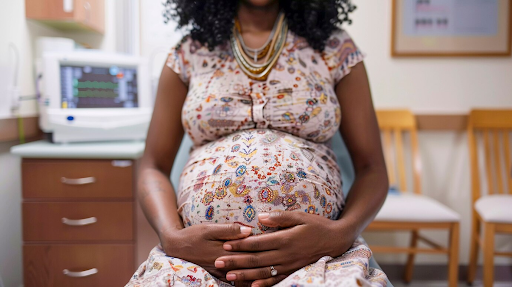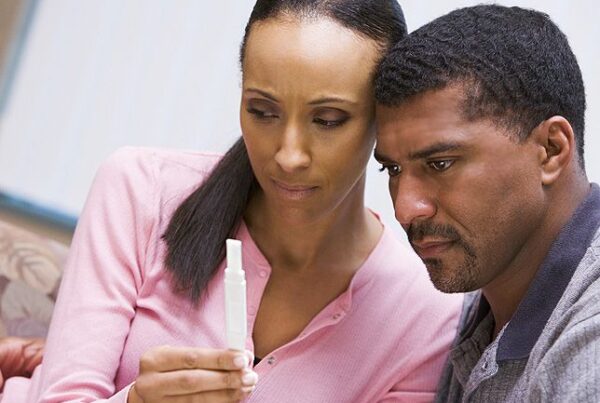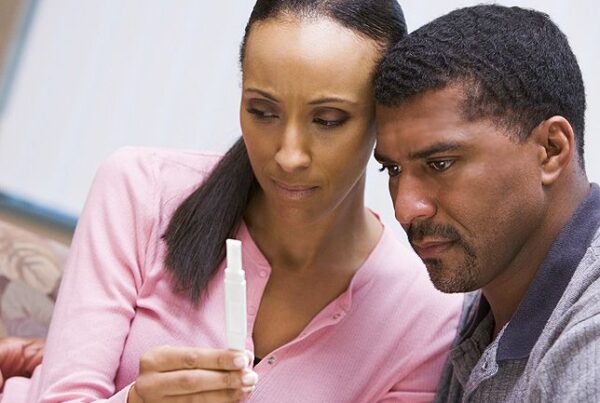Your age is not something you can control but it affects your fertility signs and with a gradual decline in the ability to get pregnant from around age 35.
If you decide to have a baby later in life you may be lucky to do so without having problems, however, you are likely to take longer to get pregnant and you might even need assisted conception.
When you are trying to get pregnant at any age but you are having difficulty, it is normal to worry and be on the lookout for solutions.
You may be having your babies later in life for reasons beyond your control but the fact remains that as you get older, it becomes more difficult to become pregnant and the risk of miscarriage increases. A man’s fertility also decreases with age, though to a lesser extent.
However, no matter your age, pregnancy risks and challenges are bound to crop up. Although it’s no secret that pregnancy risks do increase as you age, there is always good news for couples and particularly women that are looking to conceive.
As a woman, no matter how old you are, you are bound to know just what it’s like to hear your biological clock ticking away. It can be stressful knowing there’s a time limit to fertility, but just as it is with all health issues, knowledge is power.
You many have wondered why a pregnant woman that is having a baby at over 35 years of age is considered of advanced maternal age. It is essentially a way of establishing that her pregnancy is considered high risk for complications.
You fertility decreases with age, particularly after the age of 35 because both the number and quality of eggs gets lower. As you get older your eggs get older too. How long it takes you to get pregnant varies with other factors too.
While it’s true that fertility declines with age, it’s more precise that it declines with the age of your eggs. That’s why as an older woman, it is prudent to consider egg donation as a means of getting pregnant.
If you are in your 40s and a recipient of eggs donated by a younger woman, you are likely to get pregnant at the same rate as the woman who donated those eggs. That is why egg donation is so effective in circumventing the biological clock. It is all about the egg!
There are several causes for fertility problems, but sometimes an exact cause can’t be found. This is called unexplained infertility. It is the more common cause of infertility in when who are over 35 years of age.
It is true that if you postpone childbearing to after 35 years there are chances that you might face some special risks, including miscarriage, premature delivery and stillbirth. Others include gestational diabetes, chromosomal abnormalities, and growth retardation of the fetus.
But that doesn’t mean you are destined to have a problematic pregnancy. Such a label is not strictly a diagnosis even though as an older woman chances are high that you may need a few extra prenatal exams.
If you’re 35 and above, it is worthwhile to try to boost your odds of having a healthy pregnancy by making do with smarter lifestyle choices.
In you are in your 40s, your odds of getting pregnant are less than 5 percent each month. From age 45 to 49, the odds drop even lower. When you are in your 40s and still hoping for children, you tend to feel prepared for motherhood, even though your fertility odds are lower.
In your 40s you are more prepared to handle potential obstacles when it comes to conceiving. You are dealing with the same stressors of younger women, but more at ease and confident mentally and financially, and more willing to follow a plan to optimize your health and fertility.
Risks such as gestational diabetes, hypertension, miscarriage, delivery complications, the need for a Cesarean, prolonged labour, etc., increase with age. The quantity and quality of your eggs rapidly decline, and there are risks to the baby. For instance, the risk of Down syndrome is 1/90 at age 40 and 1/30 at age 45. In fact the risk of any chromosomal abnormality is 1/66 and 1/21, respectively at both ages.
Age shouldn’t always be taken as a guarantee of fertility, but when you optimize your health, mentally, physically, and nutritionally, then your fertility may optimize as well.
When you are trying to conceive, have faith in your body, treat it well and do what you can to achieve emotional peace. Get plenty of sleep each night and limit stress.
In your 40s, time is precious and it’s perfectly okay to go in for basic testing even prior to trying.
At this age, the time to seek help from a fertility specialist ranges from 3-6 months of trying to get pregnant naturally. However, there’s nothing wrong with being preemptive.
In your 40s, you have essentially the same treatment options as you did in your 20s and 30s, though success rates are drastically lower. For instance, by age 44, your odds of becoming pregnant through IVF are less than 5 percent using your own eggs.
There are treatments such as IVF (in vitro fertilization) that can help you to conceive if you are struggling even if there are other health concerns related to fertility. However, age is not the only thing that may affect your fertility.
Your lifestyle, weight and infection can also have an impact on your ability to get pregnant. If you are thinking about having a baby later in life, try not to get too stressed about the impact of age on your fertility. When you are conceiving later in life, it helps to know what to expect and how to ensure a healthy pregnancy.





